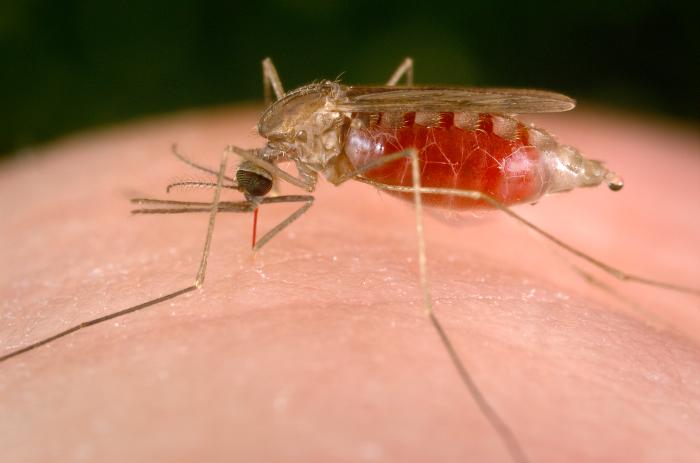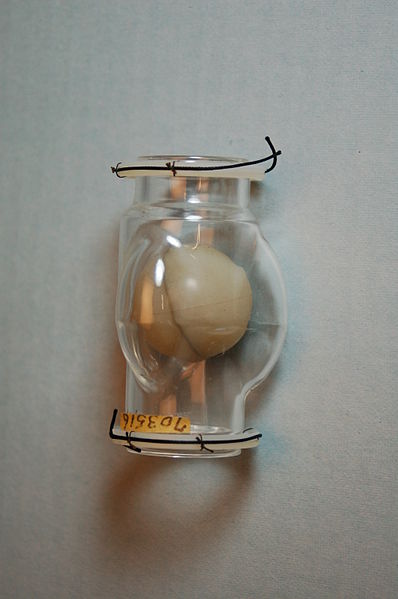
Which animal has killed more people than any other?
Sharks? Sharks are terrifying, right? Nah. They’re not even in the top ten people-killers. They kill about 10 people per year worldwide. Lions? They do a little better with about 100 deaths per year. Snakes are in third place, killing about 50,000 annually.
The number one animal killer of humans is the lowly mosquito which racks up a staggering 750,000 human deaths every year. Mosquitoes achieve the vast majority of those deaths by transmitting malaria, but they also transmit dengue fever, yellow fever, West Nile virus, chikungunya and lots of other diseases that make us sick and sometimes make us dead.
(In second place are humans, who kill about 475,000 other humans annually. It would be nice if one day we could figure out how to kill fewer people than snakes do, thereby sinking to third place.)
In January I wrote about Zika virus, a virus spread by mosquitoes, which at the time was spreading through Latin America and the Caribbean. Zika most commonly causes fever, rash, joint pain and conjunctivitis (pink eye). The illness is usually mild, and many infected people may have no symptoms at all. But in infected pregnant women Zika virus can cause miscarriages and serious birth defects. And very rarely Zika can cause Guillain-Barré syndrome, a disorder that results in temporary paralysis.
This year Zika virus has spread further across Latin America and the Caribbean, including Puerto Rico. As of July 27 there were about 1,600 cases of Zika in the U.S., virtually all of them acquired during travel to infected areas, none acquired here.
That changed last week when the Centers for Disease Control (CDC) reported that 4 cases of Zika were identified in Miami which were unrelated to travel. Since then a total of 15 cases have been identified in a Wynwood, a neighborhood in Miami. These cases appear to have been acquired through local transmission, that is, mosquitoes spreading the virus from person to person.
That led the CDC to issue a warning advising pregnant women to avoid travel to Wynwood, and recommending precautions for pregnant women who live or work there. This is the first time the CDC has ever advised against travel anywhere in the U.S.
Health officials are aggressively implementing measures to decrease the mosquito population in Wynwood, like eliminating standing water and spraying insecticide. But so far their effect on the mosquito population has been only modest.
It is entirely possible that Zika may spread from Miami to other warm and humid U.S. cities that are hospitable to mosquitoes. Though the illness is almost always without lasting consequences, the possibility of birth defects would pose a serious risk if Zika became more widespread in the U.S. Work has commenced on a vaccine, but that is at least a year away.
But there is a tested technology that may be just the thing to beat Zika back. The British biotech firm Oxitec has developed a genetically modified (GM) mosquito that they would like to release as a test in the Florida Keys. The modified mosquito has only two differences from the mosquito in the wild. The first is a gene that makes the mosquitoes fluorescent just so that scientists can track them in the lab and in the wild and differentiate them normal mosquitoes. The second added gene is a gene that is passed to all the offspring of the GM mosquitoes and causes them to die before they reach adulthood.
The strategy is simple. Lots of male GM mosquitoes are released into an area. (It is only the female mosquitoes that bite and transmit disease.) The GM males compete with the natural males to mate with the natural females. The offspring of the GM males never make it to adulthood and the mosquito population plummets. Below some mosquito density, diseases can no longer be propagated from person to person because there are too few mosquitoes to guarantee that a sick person gets bitten and the disease is passed to the next person. These mosquitoes have been released in five trials in South America. Each time the local mosquito population was dropped by more than 90%. Since the GM mosquitoes and their progeny all die, the environment is not changed in any other way.
The only problem with this promising plan is public resistance. Residents in the Keys, like most Americans, have been conditioned for generations to be terrified of scientific words like “genetic” or “radiation”, and to believe that biotech is a synonym for “sinister poison” and corporation means “Beelzebub”. They are concerned that the GM mosquitoes will make their kids fluorescent or make them sterile or herald the zombie apocalypse.
So Oxitec is working on reassuring the good people of Florida by teaching them some basic high-school biology. They hope that they can make progress faster than Zika does. Time will tell.
Learn more:
Florida County to Start Aerial Spraying in Zika Battle (Wall Street Journal)
Mutant mosquitoes could fight Zika in Florida, but misinformation spreads (Tampa Bay Times)
Officials Warn Pregnant Women to Avoid Miami Neighborhood Affected by Zika (Wall Street Journal)
Four Zika Infections in Florida Likely First in U.S. From Mosquito Bites (Wall Street Journal)
How Big a Threat Will Zika Be At the Olympics? (Wall Street Journal)
The Deadliest Animal in the World (gatesnotes, the blog of Bill Gates)
Zika Virus (Centers for Disease Control and Prevention)
CDC Issues Travel Warning Due To Zika Virus (my post in January)

